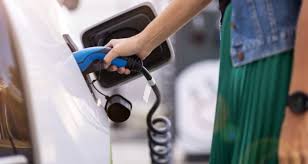
Breaking News
 A Weird Obsession - and a Strange Duality
A Weird Obsession - and a Strange Duality
 Debt, Inflation, and the Illusion of Protection
Debt, Inflation, and the Illusion of Protection
 Newsom Gives $90 Million in 'Emergency' Funds to Planned Parenthood
Newsom Gives $90 Million in 'Emergency' Funds to Planned Parenthood
 Winter survival guide: Essential skills for thriving in snow and ice
Winter survival guide: Essential skills for thriving in snow and ice
Top Tech News
 New Spray-on Powder Instantly Seals Life-Threatening Wounds in Battle or During Disasters
New Spray-on Powder Instantly Seals Life-Threatening Wounds in Battle or During Disasters
 AI-enhanced stethoscope excels at listening to our hearts
AI-enhanced stethoscope excels at listening to our hearts
 Flame-treated sunscreen keeps the zinc but cuts the smeary white look
Flame-treated sunscreen keeps the zinc but cuts the smeary white look
 Display hub adds three more screens powered through single USB port
Display hub adds three more screens powered through single USB port
 We Finally Know How Fast The Tesla Semi Will Charge: Very, Very Fast
We Finally Know How Fast The Tesla Semi Will Charge: Very, Very Fast
 Drone-launching underwater drone hitches a ride on ship and sub hulls
Drone-launching underwater drone hitches a ride on ship and sub hulls
 Humanoid Robots Get "Brains" As Dual-Use Fears Mount
Humanoid Robots Get "Brains" As Dual-Use Fears Mount
 SpaceX Authorized to Increase High Speed Internet Download Speeds 5X Through 2026
SpaceX Authorized to Increase High Speed Internet Download Speeds 5X Through 2026
 Space AI is the Key to the Technological Singularity
Space AI is the Key to the Technological Singularity
 Velocitor X-1 eVTOL could be beating the traffic in just a year
Velocitor X-1 eVTOL could be beating the traffic in just a year
New Electric Car Batteries Can Fully-Charge in 5 Minutes, Like Filling Your Car With Gas.

The innovative company, StoreDot, which has delivered rapid-charge versions of lithium-ion batteries for phones and scooters, has now gorged itself on millions in investment dollars and cranked 1,000 car batteries out of a Chinese assembly line.
The breakthrough replaces the graphite anode which causes problems when trying to force energy into the battery. The lithium ions become congested through this method, before phase-shifting into metal and then shorting the battery.
StoreDot replaces the graphite with silicon, which not only circumnavigates this problem but reduces costs since silicon is far cheaper. The current crop of 1,000 batteries uses germanium, which is also waterproof, and the silicon ones are expected later in the year.
Tesla and its founder Elon Musk liked the sound of this idea, and so set up a research and development center in Israel to take advantage of the innovations coming out of StoreDot, which was named by Bloomberg as the New Energy Finance Pioneers winner for 2020.



